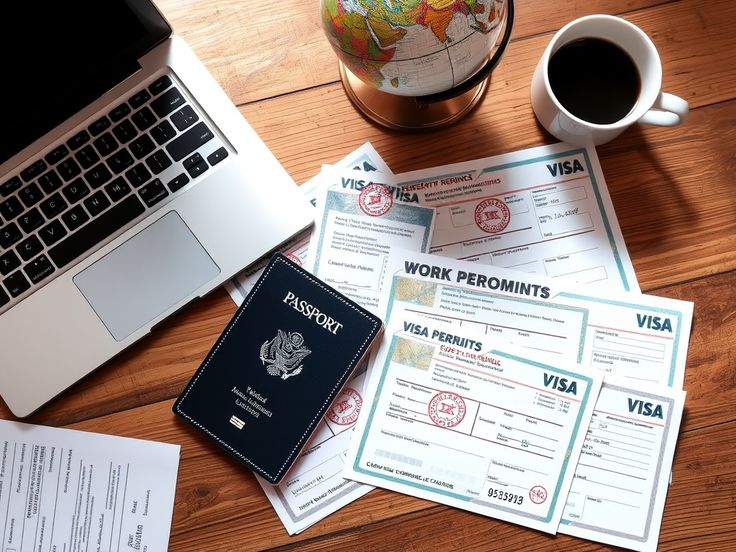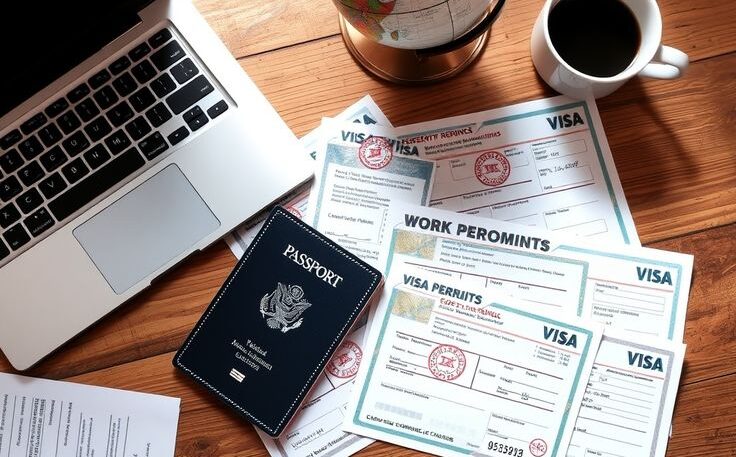Everything You Need to Know About I-131: 7 Crucial Insights & Hidden Challenges You Shouldn’t Miss!
The U.S. immigration process can be a long and complicated journey, and one of the most important forms that applicants often encounter is the I-131. Whether you’re applying for a reentry permit, a refugee travel document, or advance parole, understanding the I-131 and its complexities can save you a lot of time and frustration. In this blog post, we’ll dive deep into the details of the I-131, exploring essential insights, hidden challenges, and common mistakes. We’ll cover everything you need to know to ensure your application is a success.
What is I-131?
The I-131 form is a U.S. Citizenship and Immigration Services (USCIS) document that allows individuals to apply for certain travel-related benefits. These include:
-
Reentry Permit for lawful permanent residents (LPR) who wish to travel abroad without losing their status.
-
Advance Parole for individuals in the U.S. on certain types of visas (like those applying for adjustment of status) who want to travel abroad and return without abandoning their application.
-
Refugee Travel Document for refugees or asylees who need to travel outside the United States.
Understanding the purpose of the I-131 and how it fits into your specific situation is the first step in making the most of this crucial immigration form. But there’s more than just filling it out—there are several things you need to know about the I-131 process.

7 Crucial Insights About I-131 You Can’t Afford to Ignore
-
I-131 is for Multiple Purposes
The I-131 serves multiple functions, but applicants often get confused between them. It’s important to clearly identify the exact purpose for which you’re applying. Whether it’s for a reentry permit, advance parole, or a refugee travel document, the instructions and requirements differ. Make sure you understand which category you fall into. -
The Timing Matters – Apply Early
When you apply for an I-131, timing is critical. The processing time for each type of application can vary. For example, a reentry permit might take several months, while advance parole could take less time. However, I-131 applicants should not wait until the last minute. Applying early ensures that you’ll receive your approval before you need to travel. Many applicants make the mistake of underestimating the time required for approval, which could result in travel disruptions. -
Ensure You’ve Got the Correct Documents
Before filing your I-131, make sure you have all the required documentation. Incomplete applications are a leading cause of delays and denials. For a reentry permit, you might need proof of your lawful permanent resident status, while for advance parole, you’ll likely need to prove your pending application for adjustment of status. Don’t overlook this step—missing documents can severely slow down your application. -
Understanding Advance Parole
For individuals applying for adjustment of status (i.e., changing from a temporary visa to permanent residency), an I-131 for advance parole is essential if you plan to travel abroad during the application process. If you leave the U.S. without advance parole, you could jeopardize your application and be denied entry when you return. This is one of the most critical aspects of the I-131 form that applicants often overlook. -
I-131 Doesn’t Grant Automatic Reentry
While a reentry permit allows a lawful permanent resident to travel outside the U.S. and return without losing their status, it does not guarantee reentry. Border officials still have the final say in whether you can reenter. Having a valid approval does not protect you from being denied entry based on other factors, such as a change in your health status or criminal history. -
There Are Hidden Pitfalls in the I-131 Process
As straightforward as the application may seem, there are common pitfalls that many applicants face. One significant challenge is not properly understanding the restrictions attached to each type of document. For example, advance parole may not be granted in certain cases, like if you’ve overstayed your visa or have a criminal background. Understanding these nuances can save you from unwanted surprises. -
Renewing or Reapplying for I-131
If you’re traveling frequently, you may need to renew or reapply for your form approval. Be mindful of the expiration dates and renewal requirements. While you can apply for a reentry permit for a period of up to two years, you may need to go through the process again if you plan on being outside the U.S. for a long time. Not renewing in time can leave you stranded outside the country.
Challenges in the I-131 Process: What You Should Be Aware Of
While many individuals experience a smooth process when submitting their applications, there are a number of challenges and potential setbacks that can cause frustration. Here are some of the hidden challenges you should keep in mind:
-
Increased Processing Times:
The processing time for an form can fluctuate depending on various factors such as location, volume of applications, and any changes in immigration policies. It’s not uncommon for the wait time to stretch beyond the expected timeline, causing significant delays. In some cases, these delays can affect your ability to travel. -
Complexity of Evidence Requirements:
As an applicant, you are required to submit supporting documents alongside the form. The list of documents can sometimes be confusing. For example, the reentry permit requires proof of ties to the U.S., which can be difficult for some applicants to provide. Similarly, refugees applying for a travel document must meet stringent criteria. -
Denial of Advance Parole Applications:
One of the most frustrating aspects of applying for I-131 is when the advance parole application is denied. Applicants who have been in the U.S. for a long time without legal status or have certain immigration violations in their history may face denials. If this happens, you may find yourself stuck in the U.S. without an easy way to travel abroad. -
Loss of I-131 Approval:
In some cases, individuals may lose their I-131 approval if they violate certain conditions. For example, if an individual with advance parole leaves the U.S. for an extended period, they could lose their status. It’s important to read the fine print and ensure that you comply with all the rules associated with your I-131 approval. -
Increased Scrutiny Under Immigration Policies:
In recent years, there has been an increased focus on stricter immigration policies, which means that applications for I-131 may face additional scrutiny. Applications that once passed through with minimal issues may now be more thoroughly examined. This has resulted in longer waiting periods and more frequent requests for additional evidence.
How to Avoid the Most Common Mistakes When Filing I-131
-
Be Thorough with Your Application
The most common mistake that applicants make when filing the I-131 is submitting incomplete or incorrect forms. Before submitting, double-check everything to ensure that you’ve included all required documents. Also, carefully read the instructions for each section of the form. -
Don’t Wait Until the Last Minute
As mentioned earlier, processing times can be long, so don’t wait until the last minute to file your I-131. Give yourself ample time to gather documents and wait for the approval. It’s better to plan ahead than risk a situation where you can’t travel when you need to. -
Understand the Reentry Permit Restrictions
If you’re applying for a reentry permit, be sure to understand the rules governing your travel. A reentry permit is typically valid for two years, but if you stay outside the U.S. for more than a year, you may face questions about whether you’ve abandoned your permanent residency status.
Conclusion: Navigating the I-131 Journey Successfully
Applying for an I-131 can be a straightforward process if you know what to expect and how to avoid common mistakes. Whether you’re applying for a reentry permit, advance parole, or a refugee travel document, staying organized, applying early, and thoroughly understanding the requirements are keys to success. Keep the insights and potential challenges in mind, and you’ll increase your chances of a smooth and successful application process.
While it may feel like a complicated and sometimes frustrating process, with the right preparation, you can navigate the I-131 journey with confidence. If you’re in doubt, consider seeking help from an immigration attorney to ensure your application is in the best possible shape.




